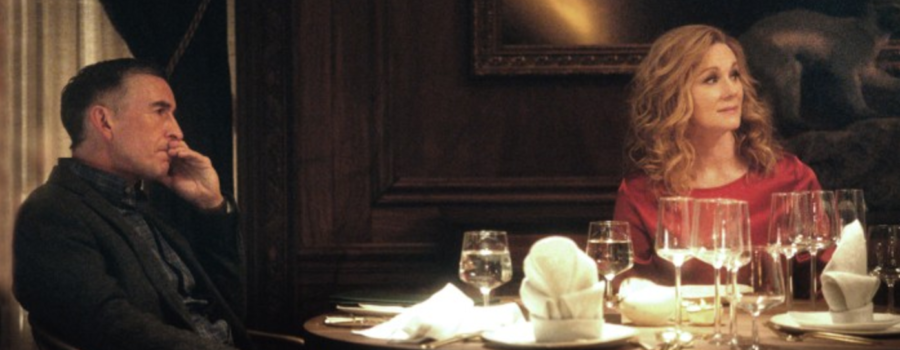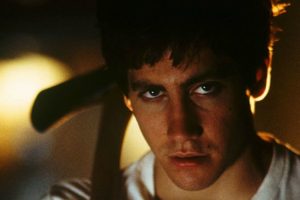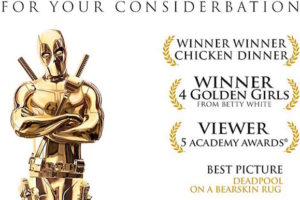
Oren Moverman
[Featured on Awards Circuit] 2017 Berlin International Film Festival: Writer and director Oren Moverman is no stranger to intense subject matters. The Tel Aviv, Israel native was the mastermind behind “The Messenger,” a film which catapulted Ben Foster into superstardom, about the men in the United States military who are assigned to give the unfortunate news of soldiers’ deaths to their families. His follow-up, “Rampart,” reunited him with Woody Harrelson, and tries to bring humanity to a racist, corrupt police officer. Suffice it to say, Moverman knows how to handle difficult themes with ease. “The Dinner” is his fifth directorial effort, 12th screenplay and his most uncomfortably tense “thriller” yet. Though the screenplay is an adaptation of Herman Koch’s acclaimed novel, it appears Moverman might have tried to take on too many of Koch’s themes, creating a somewhat disjointed plot that, at times, physically exhausts the viewer.
Given, for the majority of the film, its singular setting is in a restaurant, and “The Dinner” unfolds as part stage-play, part tragedy-comedy, focusing solely on the actors’ performances. With Richard Gere as Stan, Laura Linney as Claire, Steve Coogan as Paul, Rebecca Hall as Katelyn, and Chloë Sevigny as Barbara, Moverman found what is likely his best ensemble cast to work with yet. His adapted screenplay, based on Koch’s novel, has a rough transition between flashbacks and the present. There are narrative cues that do not seem to further the plot.
Moverman uses the courses of the fateful dinner to announce the film’s acts, trying to correlate (or contrast) the beautiful artistic layout of the food with the film’s less palatable themes. Although this entanglement of food and thought is an intriguing idea, it is not the first, nor the best film to tie the two together. Better examples can be seen in Stanley Tucci’s “Big Night” and Bryan Fuller’s singular masterpiece series, “Hannibal,” which deftly tackle what Moverman was going for in this film.
The predominant theme is as follows: The American Civil War has not ended. It never did. This glimpse into middle-American suburbia is an anxiety-inducing experience. Although Moverman intends the anxieties expressed onscreen to be transposed onto the audience the way they are conveyed in the novel, oftentimes the anxiety comes from a cluttered plot that tries to cram too much into it.
Paul (Coogan) is reluctant to attend a dinner with his brother, Stan (Gere), and his sister-in-law Katelyn (Hall), yet his wife Claire (Linney) insists they attend. What unfolds is a truly horrifying revelation during the various conversations they have over this fateful dinner. The two couples, connected by a horrific crime committed by their children, are pulled into a moral dilemma of dealing (or not dealing) with the consequences of the crime.
The crime: two sons from either family light an African-American homeless woman on fire after a typical high school party, murdering her in cold blood as they watch, even laugh, without an ounce of remorse. Stan’s adoptive son from a previous marriage with Barbara (Sevigny), who is also African-American, refuses to partake in the act. It is necessary to point out race in this instance, because the cast is predominantly, intentionally white, and their ostensibly banal racism takes a front row seat towards the film’s climax.
Steve Coogan as Paul gives far and away the single greatest performance of his career. It is as if Moverman made this film specifically for him, although only for him. Finally, he has found a role worthy of his dramatic range. He is the glue that holds the muddled plot together. His inner narrative serves as part insight for the viewer, and in part to portray his mental illness. Though never explicitly stated in the film, Paul suffers from what is likely Borderline Personality Disorder, something he inherited from his and Stan’s mother.
Throughout the film, which relies on flashbacks too heavily to fill in the blanks, he continuously blames everyone else, victimizing himself, accusing Stan of stealing his mother away from him, depriving him of a decent childhood, and always holding that above him. This has created a complex of sorts to add to his illness, one which perpetuates his pacifism, almost nihilism. He hates almost everything except for his obsession with history and war, particularly the battle of Gettysburg, about which he was in the process of writing a book when he had his breakdown. As the film progresses and the crime of murder is revealed, the audience learns that his mind does not have the tools to equip him for handling the issue.
Paul even goes so far as to blame his adopted 10-year-old black nephew, Beau, during one of the flashbacks, for pulling the race card. In reality, Beau was systematically verbally and physically abused by his white siblings. This would have been something that Moverman could have focused on, instead of meandering through subplots of Claire’s cancer and remission, Barbara’s unknown past and departure from the family, and little signs of Michael’s violent urges through flashbacks. Somewhere in the translation of novel from script to screen, the different themes were distilled and dispersed. Moverman should have picked a maximum of two of these subplots to focus on. Paul’s narration and inner thoughts provide much-needed comic relief at times. His pessimism is entertaining, pointing out the absurdity of social constructs, the excesses of the upper-middle class in America, an example of which is provided in his refusal to partake in them, refusing most dishes because of the ridiculously small portions and the steep price. This is funny, and Coogan’s neuroticism is perfect for this commentary, but it does not seem to fit in the film as a whole. A story like this, given the way it is conveyed onscreen, filled with the brutality of several atrocious acts of violence and perturbing ignorance, has no room for comedy. It is not clear whether Moverman was attempting to tackle comedic satire, or bluntly confronting societal hypocrisies. Again, the transition between these two concepts comes off as forced.
However, let us focus further on Coogan’s Paul, because he is the only multi-dimensional character in the film. He is a former history teacher who lost his job when he cracked during a history class while describing Gettysburg, the battle that “ended” the Civil War. He gets upset that his students are so uninvolved and uninterested and spews profanities at them, proceeding to try and articulate the value of the lives lost while simultaneously condemning and honoring war. To put things in perspective, he cannot understand why people put an emphasis on ALL the lives lost during war, explaining that the “assholes” who died should not be grouped into the same category as the valiant and upstanding people who died. He further expounds upon this idea, explaining that “every family has an asshole,” and that if they were to die tomorrow, they might be happy. Clearly, he is projecting his own ideologies shaped by his unhappy home life onto his students. In a scene with the waiter at the dinner, Paul explains that it is selfish to reproduce in an overpopulated, declining world. Reproduction is simply an animal instinct to survive and multiply our species on a visceral, cellular level.
The ignorance and deafening prejudice of both couples has rubbed off on their children, all of which, save for Beau, are monsters. There is no substance to the characters of the children, so there the term “monster” is aptly used in this instance. Furthermore, Coogan’s acting counterparts are underutilized for the most part, particularly Sevigny as Barbara, who is only briefly on screen for a couple of flashbacks.
Paul, along with every other character in this film, is overtly racist, although they would fervently deny it. This is a scary form of racism that Moverman covers throughout the film, one characterized by a seemingly benign, unwitting racism. It is a poison that still infects half of the United States today, a sentiment lingering from years of bitterness after the confederates lost the American Civil War. The truth is, Coogan does not know who he is, feeling intellectually superior while saying that history cannot compete with the likes of Facebook, Instagram, YouTube, Skype, Tinder, etc. He has a point. History seemingly has no meaning to the youth of today, through his eyes. The theme of technology as a form of isolationism has become almost cliche, but Coogan’s Paul is so smart, he articulates it with ease and style. This feeling of resentment towards youth fuels Paul’s anger and racism, and heightens his unprovoked prejudice towards his African-American nephew. Earlier in the film, a self-proclaimed pacifist, Paul’s foggy mind turns everyone against it by the end. The aforementioned hostility Paul has for his family explodes onto screen in the film’s climax. The film ends rather abruptly with Paul’s ramblings of the devolution of humans as “apes with phones,” and, to Moverman’s credit, this left the audience speechless. There were very few claps when the credits rolled. There was a piercing silence, likely due to confusion, bafflement, and an overwhelming consumption of unnecessary emotional agony. “The Dinner” is a difficult film to watch, but, it is well worth seeing solely for Coogan’s revelatory performance.
“The Dinner” is produced and distributed by The Orchard. The film had its Berlinale debut on Feb. 11, and has yet to receive a release date.
GRADE: (★★½)








Leave a Reply
Your email is safe with us.